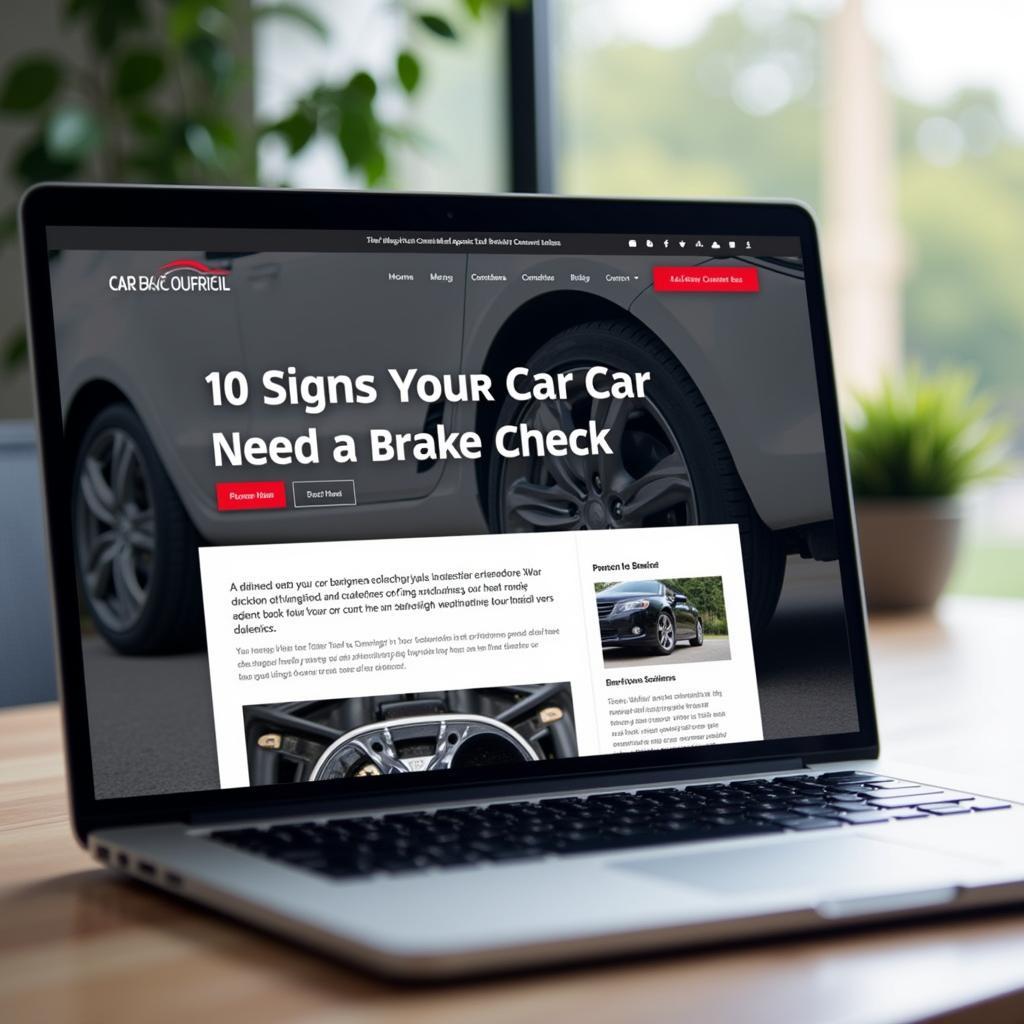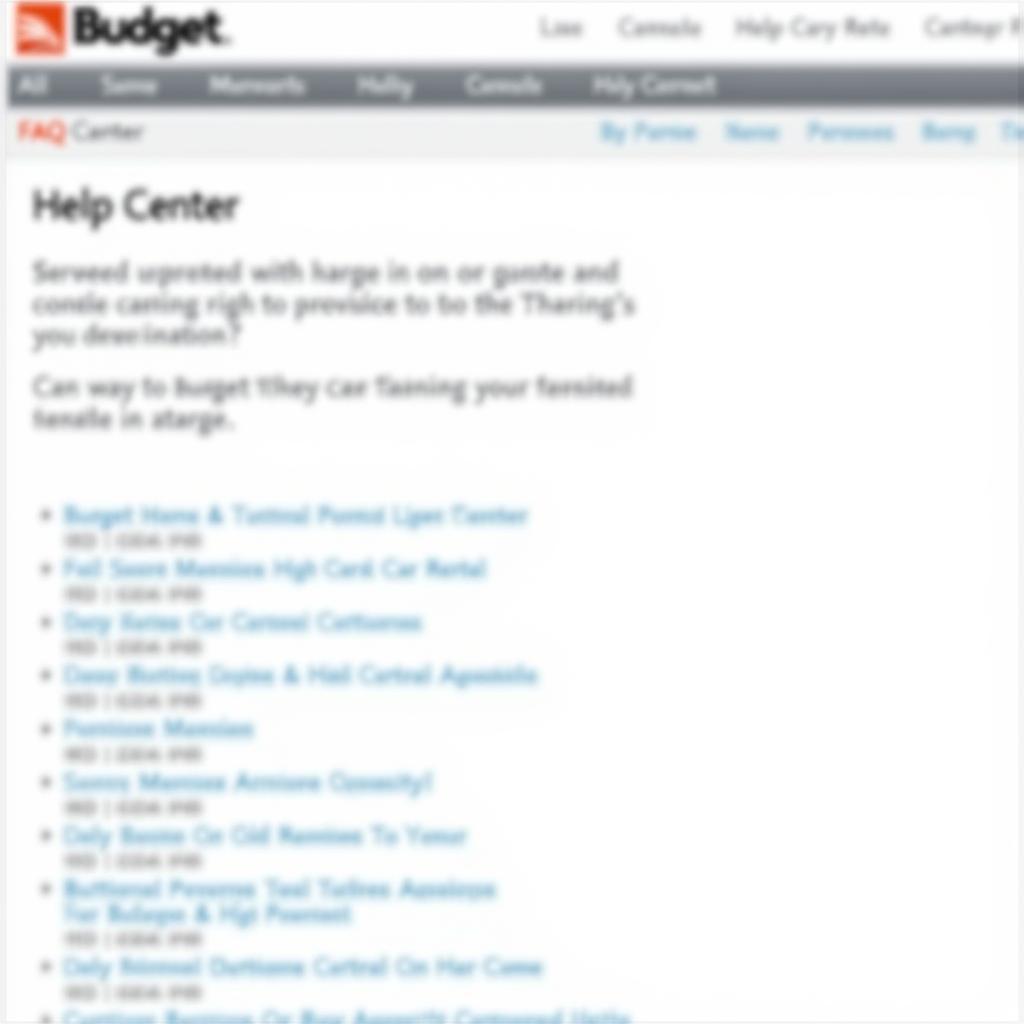How Does Marketing Cars Differ From Marketing Service?
The automotive industry thrives on a delicate balance: the allure of shiny new cars and the essential need for reliable service to keep them running smoothly. While both fall under the vast umbrella of automotive marketing, understanding the nuances of “How Does Marketing Cars Differ From Marketing Service” can be the key to unlocking success for dealerships and service centers alike.
 Car Dealership vs. Car Service
Car Dealership vs. Car Service
Distinct Products, Distinct Approaches
At its core, marketing is about understanding and appealing to your target audience’s needs and desires. However, the desires surrounding a tangible product like a car are inherently different from those associated with an intangible service like car maintenance.
Marketing Cars: Selling the Dream
Car marketing often taps into emotions and aspirations. It’s about selling a lifestyle, a status symbol, or the thrill of owning a piece of engineering excellence. Think sleek commercials showcasing cars gliding through scenic landscapes, emphasizing speed, luxury, and cutting-edge technology.
- Emotional Appeal: Buyers often connect with a car’s design, brand image, and the feeling it evokes.
- Focus on Features: Marketing campaigns highlight the latest technology, performance specs, safety features, and luxurious amenities.
- Competitive Landscape: The focus is on differentiating a particular make and model from its rivals in a crowded marketplace.
Marketing Car Service: Building Trust and Loyalty
Service marketing, on the other hand, is about building trust and long-term relationships. It’s about positioning your business as a reliable partner dedicated to keeping their prized possession in top condition.
- Rational Appeal: Service marketing relies on logic and practicality. Customers need assurance of quality, expertise, and fair pricing.
- Focus on Expertise: Highlighting the skills and certifications of technicians, the use of advanced diagnostic tools, and commitment to customer satisfaction is crucial.
- Building Relationships: Service marketing emphasizes transparency, communication, and going the extra mile to foster trust and loyalty for repeat business.
Tailoring the Marketing Mix
The differences between marketing cars and car service extend to the marketing mix – the tools and strategies employed to reach the target audience.
Product (or Service)
- Cars: The product itself is the star. Marketing focuses on showcasing its unique selling propositions and differentiating features.
- Service: The service offering is multifaceted. It includes routine maintenance, repairs, part replacements, and customer service aspects like appointment scheduling and communication.
Price
- Cars: Pricing is often influenced by brand positioning, competition, and perceived value. Negotiation is common.
- Service: Transparency is key. Clearly communicate service packages, hourly rates, and the cost of parts.
Place
- Cars: Dealerships are strategically located for visibility and accessibility. Online presence is crucial for research and comparison shopping.
- Service: Convenience is paramount. Consider factors like proximity to residential areas, easy access, and comfortable waiting areas.
Promotion
- Cars: Mass media advertising (TV, print, online), social media campaigns, and event sponsorships are common.
- Service: Local marketing efforts like flyers, direct mail, online directories, and community engagement are more effective.
Digital Marketing Strategies: Bridging the Gap
While traditional marketing approaches differ, the digital realm offers unique opportunities to bridge the gap between selling cars and selling service.
-
Content Marketing: Both car dealerships and service centers benefit from providing valuable, informative content online.
- Dealerships: Create blog posts and videos about new car models, comparisons, financing options, and car care tips.
- Service Centers: Offer articles and videos explaining common car problems, maintenance schedules, DIY tips, and the benefits of professional service.
-
Search Engine Optimization (SEO):
- Dealerships: Target keywords related to car models, brands, features, and comparisons.
- Service Centers: Optimize for keywords like “car repair near me,” “oil change coupons,” “brake repair specialists,” etc.
-
Social Media Marketing:
- Dealerships: Showcase new models, run contests, and engage with potential buyers.
- Service Centers: Share customer testimonials, behind-the-scenes looks at their work, and promote special offers.
 Digital Marketing for Car Service
Digital Marketing for Car Service
From Transaction to Relationship: The Power of Integration
One of the most significant opportunities lies in integrating car sales and service marketing efforts.
- Data Sharing: Dealerships can leverage customer data (purchase history, service records) to personalize service reminders and offers.
- Joint Promotions: Bundle car purchases with attractive service packages or discounts to incentivize customers.
- Seamless Experience: Provide a unified online and offline experience, enabling customers to easily schedule service appointments, track repair progress, and access their vehicle history.
Conclusion: Embracing the Differences, Leveraging the Synergies
Understanding the distinct approaches to marketing cars versus marketing car service is crucial for success in the automotive industry. By embracing these differences and leveraging the synergies between the two, dealerships and service centers can create comprehensive marketing strategies that attract new customers, build lasting relationships, and drive business growth. Remember, in the automotive world, the journey doesn’t end with the sale; it’s just the beginning of a long and potentially profitable road ahead.
FAQs
1. How can I market my car service business without a big budget?
Focus on local SEO, online directories, social media marketing, and community engagement. Offer referral bonuses and run promotions targeted at your local area.
2. What kind of content works best for attracting car service customers online?
Informative articles and videos addressing common car problems, maintenance schedules, DIY tips, and the benefits of professional service resonate well with car owners.
3. Is email marketing still relevant for car dealerships or service centers?
Yes, email marketing is valuable for staying in touch with customers, sending personalized service reminders, promoting special offers, and sharing valuable content.
4. How can I differentiate my car service business from the competition?
Focus on your unique selling propositions – whether it’s specialized expertise, exceptional customer service, convenient location, or competitive pricing.
5. What are some effective ways to get customer reviews for my car service business?
Make it easy for satisfied customers to leave reviews by providing links on your website, social media profiles, and email signatures. Consider offering a small incentive for leaving feedback.
Want to Learn More About Growing Your Car Service Business?
Check out these helpful resources:
- How to Get a Car Rental Service Started
- How to Design a Car Service Center
- Does Full Car Wash Service Include Inside
- How to Start a Self Service Car Wash
Need personalized guidance on your car service marketing strategy? Contact us today! We’re here to help you accelerate your success.
Get in touch:
WhatsApp: +1(641)206-8880
Email: [email protected]
Our team is available 24/7 to answer your questions and provide expert support.

